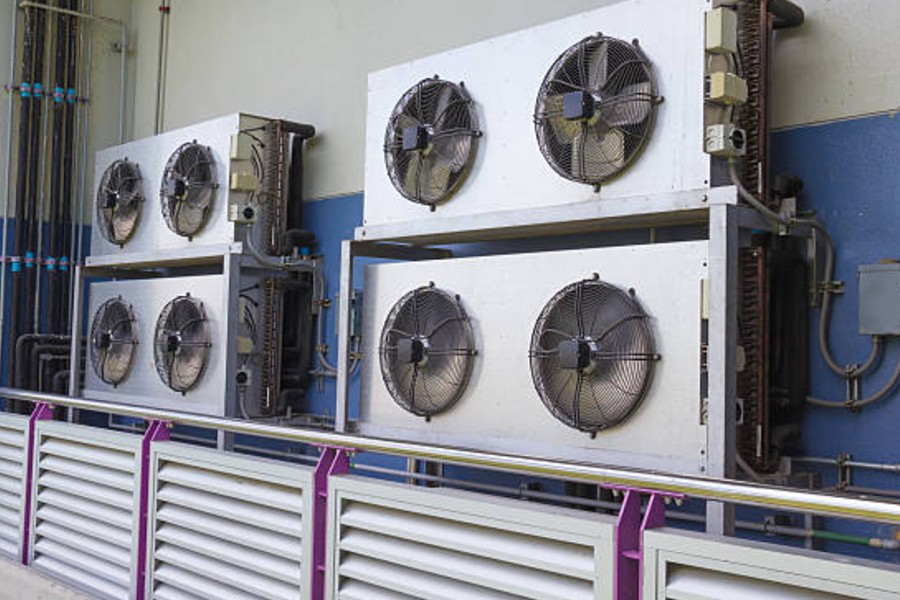
Fleet management is an important term in the transport industry. There is a lot of information available on fleet management and what it is all about.
This article is your one-stop to knowing and finding out the basics about fleet management in the transport industry.
Fleet Management: What is it?
Fleet management is one part of the many functions and roles that businesses and agencies have to play. In particular, it is an important function of such organizations that rely on transportation when it comes to offering their goods and services. Fleet management narrows down on managing productivity whilst at the same time controlling costs and reducing risks. In short, it is to improve efficiency. When managed properly, an organization can benefit from things like reduced carbon emissions and increased employee safety. From the mailing industry to the construction field, fleet management is an integral and important aspect of many organizations. Technology is also constantly improving to make things simpler and more efficient when it comes to managing vehicle-related tasks. There is fleet management software available so as to access fleet vehicle data at one precise and secure location. This will enable managers to be better informed and this would lead to better decisions which in turn will result in better optimization of their fleet.
So what exactly do these fleet management departments do?
There are many aspects of fleet management that come under the purview of fleet managers. Firstly, there is fleet maintenance. This refers to ensuring that all processes and policies are well designed such that an organization’s vehicles are safe to operate. Following such protocols are very important in ensuring that the vehicles are reliable such that drivers or employees are not compromised and their safety is ensured. There is also fuel management which refers to the management of fuel types (gasoline, electric energy, or natural gas). It is also related to the management of the repairs and maintenance works that are needed depending on the type of fuel used.
With fuel management also comes the responsibility of route planning so as to optimize resources. This refers to making sure that vehicle routes are not unnecessarily long such that productivity is not compromised. There are also other responsibilities under this aspect of management which include designing routes and allocating vehicles or tracking travel time and time spent in certain areas of business.
That’s not all! There are also administration-related duties of a fleet management department. This includes contract management and fiscal planning. Fleet management departments need to draft up contracts regarding new vehicles or equipment, need track and manage logistics such as disposing of vehicles that are not functioning anymore, and many more contract-related duties. Finally, there is also the need to train drivers to operate vehicles and other equipment and there is a need to ensure compliance. Drivers need to be aware of different compliance standards in different areas. Fleet managers need to report compliance and give out instructions to the drivers. Other general administration tasks such as license reviews or data preservation are important to managing fleets for organizations.
Why is having a good management system for your fleet important?

If you have a good management system in place when it comes to managing your fleet, you are sure to have a successful business operation. It is one of the key pillars in ensuring that your organization is working in the most efficient way possible. From extending the life of your equipment to reducing workplace accidents, fleet management is a critical aspect in ensuring that everything goes smoothly.
Fleet management departments are always focusing their intentions on ensuring peak efficiency. They are always looking for issues to be solved such that improvement is made. From increasing safety to tracking vehicles or monitoring the lifecycle of vehicles, fleet management departments look at everything there is with a keen eye to make sure that no stone is left unturned. The meticulous nature of fleet management will ensure that your organizations will have minimal concerns when it comes to managing all the transportation of your organization.
Well, with all these benefits of fleet management, how does it work then?
Generally, every fleet management system functions upon the same foundations. The main goals are to reduce any hiccups and to improve efficiency. There are many ways to go about achieving these core foundations.
Vehicle Procurement
This refers to the organization of fleet assets that are generally performed via the buying or leasing of fleet assets so as to suit the needs of the fleet. Fleet management departments need to work on the ground to be familiar with what the company is working towards and the state of current fleet operations such that they can make plans on how and what to procure for the company.
Management of drivers
Another key pillar to focus on is managing drivers and ensuring that they are acting in accordance with the rules and regulations set in place. In the first place, a strong foundation must be built by crafting good organizational regulations. Then, managers need to communicate these important regulations and need to regulate drivers as well. Through incentives, performance metrics, or coaching, managers can improve the productivity of their fleet as they will be able to keep their drivers engaged and on track to achieving the organization’s goals. When it comes to the management of drivers using shell fuel card can be a good option when needed.
Monitoring Fuel Efficiency
Ignoring the most expensive part of a fleet would be a grave mistake for fleet management departments. Reducing costs in this area would significantly impact an organization. In order to do this, fleet managers need to keep track of many things such as vehicle idling, routing and vehicle size, speeding, and the weight and type of vehicles.
Minimizing costs in other areas
Other important aspects that are often cause for issues as well as areas that managers could often find room for improvement include tracking fuel consumption, tracking collisions, or compliance fines. These are small errors that can actually be avoided to reduce overall costs.
Conclusion

As you have probably realized, there are really many many things that are under the purview of fleet management. There are good fleet management departments and great fleet management departments. The difference is that great management systems continue to stay meticulous and are always looking to improve their systems and processes no matter how well their current systems are working.
- FDA’s Concerns With Unapproved GLP-1 Drugs Used For Weight Loss From Harlem To Hawaii
- Two-Thousand Turkeys To Be Distributed By Anti-Poverty Nonprofit Oyate Group From Harlem To Hollis
- Interview With A Wedding Videographer: Insights And Stories
- Sponsored Love: Luxury Villas In Dubai For Families, What To Look For
- Espaillat Signs Historic Agreement To Enhance Science And Conservation Efforts Between Dominican Republic And NY
Become a Harlem Insider!
By submitting this form, you are consenting to receive marketing emails from: . You can revoke your consent to receive emails at any time by using the SafeUnsubscribe® link, found at the bottom of every email. Emails are serviced by Constant Contact








